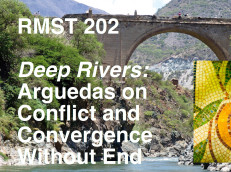This week I chose to read Nada by Carmen Laforet.
The main protagonist, Andrea, was excited about the trip by herself to the place she had adored. She is moving to Barcelona to attend university and study literature. The descriptions Andrea had made when she arrived in Barcelona all seem to be dark and gloomy. After she got to her relatives house, it “all seemed like nightmare” (p5) to her. She was first greeted by her grandma who seems to have forgotten about her, then it was her uncle Juan whom she described as“ a skull in the light of the single bulb in the lamp” (p6) and seeing “several ghostly women” (p6) when she looked up.
The house seems to be in disorder and suffocating. It is filled with cobwebs, dust and a bathroom that seemed like a witches’ house (P8).
She described the room she is staying as “like the attic of an abandoned palace” and“like a grave mound surrounded by mourners” (p9). When the candle got put out, Andrea thought she “was trembling with undefinable terror” (p9). Not only the house, there also seems to be tension between the family members. There are a lot of arguments and fights going on, even Andrea’s uncle Roman told her not to be frightened as it happens everyday (p18).They also have a complicated relationship going on in the house.
The reason why Andrea is making friends and connecting with people around her age may be because of the wish to escape from her family. “Only these beings of my own generation and my own tastes could support me and protect me from the somewhat ghostly world of older people” (p44). I believe being with her friends allows her to briefly escape from the pain/conflicts her estranged family brings. She especially cherished her friendship with Ena.“She made me feel that I was everything I wasn’t: rich and contented” (p53), being with Ena helped her feel a sense of belonging because no one she loved has ever shown her so much affection as Ena had (p52). Ena is able to make her feel loved in a way that her family never provided. The thought of leaving her family never left her even when she was with Pons, “Illustrations of… Pons leading me by the hand, out of my house and towards happiness” (p181).
A question I have for the class is: When Andrea just got to Barcelona, aunt Angustias told her not to become friends with Gloria or she would be disappointed. If it was you, would you avoid Gloria just to be on aunt Angustias good side?

